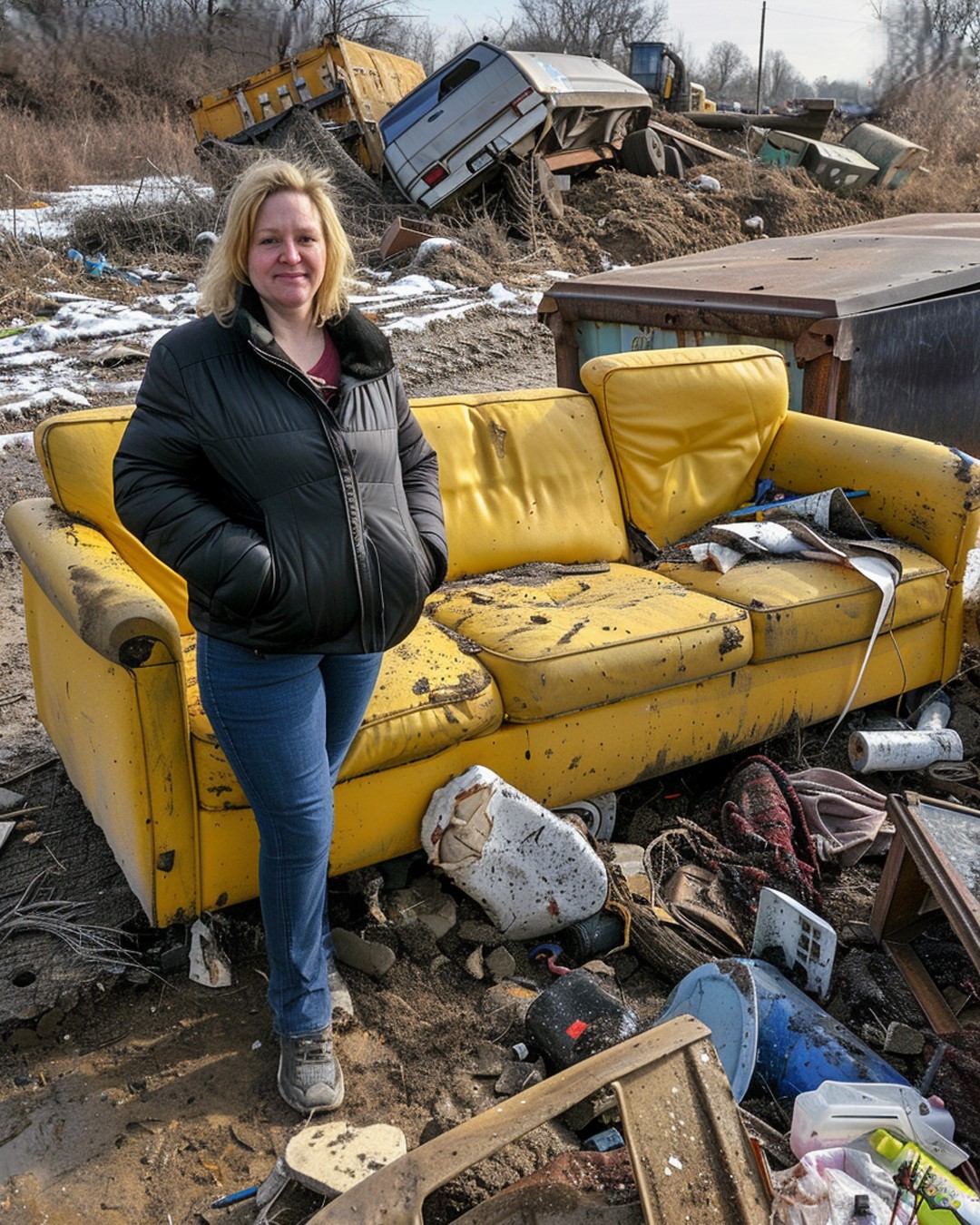I Took Our Old Couch to the Dump, but My Husband Freaked Out, Yelling, You Threw Away the Plan

When Tom’s eyes locked onto the empty space in our living room, panic spread across his face. “Please tell me you didn’t…” he started, but the look in my eyes confirmed his fears. It was already too late.
I’d been asking Tom to get rid of that old couch for months. It was a relic of his bachelor days, sagging, stained, and teetering on the edge of collapse.
“Tom,” I’d say, “when are you taking the couch out? It’s an eyesore!”
“Tomorrow,” he’d mumble without looking up from his phone. “Next weekend, I swear.”
Spoiler alert: tomorrow never came.
So last Saturday, after one too many glances at that sad piece of furniture, I snapped. I rented a truck, hauled the couch out myself, and drove it straight to the dump. By the time I got back, I was practically glowing with pride.
When Tom walked through the door later, he froze. His eyes darted to the sleek, brand-new couch I’d picked out, then to the glaring empty spot where his old one had been.
“Wait… what’s this?” he asked, his voice shaky.
I smiled, gesturing at my handiwork. “Surprise! Finally got rid of that thing. Doesn’t the room look great?”
But instead of the gratitude or mild approval I expected, his face went pale. “You… you took it to the dump?”
“Well, yeah,” I replied, confused by his reaction. “You’ve been saying for months you’d get rid of it! It was falling apart, Tom.”
His eyes widened in horror. “Are you serious? You threw away the plan?”
I blinked. “The plan? Tom, what plan?”
He let out a shaky breath, muttering, “No, no, no. This can’t be happening.”
“Tom!” I pressed, now panicking. “What are you talking about?”
He grabbed my hand, practically dragging me toward the door. “Get your shoes. We’re going to the dump. Now.”
“Why?!” I demanded, digging in my heels. “It’s a couch, Tom. What could possibly be so important?”
He turned to me, his face a mix of desperation and something deeper—pain. “You wouldn’t understand,” he said quietly. “Not until you see it.”
The drive to the dump was tense. Tom gripped the steering wheel so hard his knuckles turned white. Every time I tried to speak, he shook his head, silencing me.
When we arrived, he bolted out of the car, waving down a worker. “Please,” he begged, “my wife brought something here earlier. I need to find it. It’s urgent.”
The worker frowned but eventually relented. “You’ve got 15 minutes,” he said, leading us in.
Tom darted through the piles of trash like a man possessed. Finally, he spotted it: our battered old couch, lying crooked on a heap. He sprinted toward it, flipping it over and plunging his hands into a small gap in the torn lining. Moments later, he pulled out a crumpled, yellowed piece of paper.
I stared at it, baffled. “Tom… all this for that?”
He held it gently, as though it were made of glass. His hands trembled, his eyes glistening with unshed tears. “It’s the plan,” he whispered.
He sat on the couch, clutching the paper. “This… this is a map my brother and I made when we were kids. It’s all that’s left of him.”
I froze. Tom had never mentioned a brother before. “What do you mean?”
He took a shaky breath. “Jason was my younger brother. When we were kids, we made this map of the house—our hideouts, our secret spots. We used to keep it in the couch because it was our ‘safe place.'”
His voice broke as he continued. “When Jason was eight… there was an accident. He fell from a tree while we were playing one of our games. I was supposed to be watching him, but I got distracted. He… he didn’t make it.”
My heart clenched. I reached for his hand, but he seemed lost in the memory.
“I’ve carried that guilt my whole life,” he admitted, his voice trembling. “This map… it’s all I have left of him. I couldn’t let it go.”
I sat beside him, wrapping my arms around him as he cried. In that moment, I understood—this wasn’t about a couch. It was about a boy who had lost his brother and never forgiven himself.
That night, we framed the map and hung it in the living room, where it became a quiet reminder of love, loss, and the memories that shape us. Over time, Tom began to share more about Jason with me and the kids, letting go of the silence he had carried for so long.
One afternoon, I found our children sprawled on the floor, crayons in hand, creating their own “house map.” When Tom saw it, his eyes filled with something I hadn’t seen in years—peace.
“You’re carrying on the tradition,” he said, kneeling beside them. “Jason would’ve loved this.”
And in that moment, surrounded by love and laughter, it felt like Tom had finally found his own safe spot.